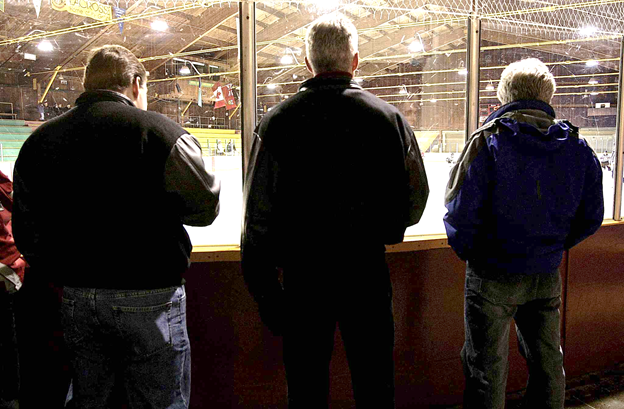Starting at an early age, we’re taught to just have fun when we play sports. But at the same time, we’re taught that winning is important. So which is it? As adults I don’t think we are clear enough in our message to our children. Competition is a healthy part of the game but at such a young age does it really matter that much? Some will argue that it is actually the parents who are competitive, while the kids are just trying to have fun. At some point we have to ask ourselves if this is detrimental to their development and can it even taint their love for the sport?
Everyone Loves Winning
Of course, that’s just human nature. But do children really understand why it is important to win hockey games? Perhaps a better question is do children really understand what it means to lose? At times it seems like we do not emphasize winning to protect the team that has lost. As parents and coaches, it seems like the more important lesson to take from sports is to be a graceful loser. We don’t just celebrate victories, but we keep our heads high in defeat as well.
You Play to Win the Game
As professionals, sure. But as children? I know when my kids play sports, I’m just happy they are able to get their energy out. If we stress that victory is the most important part of hockey, then it saps some of the fun out of playing, especially when they lose. Don’t get me wrong, I’m all for healthy competition, but at this crucial age of development, there are much more important skills and lessons to be learned.
What’s More Important Than Winning?
If your child doesn’t learn to have fun playing hockey, they’re not going to enjoy it even if they win games. Sports can be an incredible teacher to developing children both physically and mentally. Specifically in terms of hockey, the sport aids in coordination, flexibility, strength, and provides a stronger cardiovascular system. This is just from skating around after the puck for forty minutes.
But there are intangible life skills to be learned at this early age as well. Sportsmanship is a pillar of the game of hockey, and is a fundamental part of any form of competition. Learning how to respect your opponent in victory and defeat will provide a greater appreciation when they win and a greater understanding when they lose.
It’s Okay to Lose!
It seems counterintuitive to some, but it’s just as important to teach our children that it is okay to lose. In fact, our children need to expect to lose at more things than just a hockey game. Now, to be clear, this is not to say that they should expect to be losing all the time, but more to provide them with the opportunity to be more well-adjusted when they do encounter losses or defeats.
It Starts with the Parents
We’ve all seen those videos of over competitive hockey parents or a dad arguing with a little league umpire over a called strike. We might think we have our children’s best interests in mind, but believe me, in that situation we care more about that call then our kids do. Parents always need to keep in mind that our children are a reflection of our own behaviors. How well does it sit with them if you are angry at every hockey game because their team lost? Soon, they will likely associate anger and disappointment with hockey itself and that is when the passion to play the game slowly erodes.
During developmental years, positive reinforcement is crucial to building confidence and providing our children with a healthy belief in their own abilities. Parents should be watching youth hockey games as a fan of your child, not as their agent. I’ve heard of stories of parents who reward their kids when their team wins but not when their team loses. Sure, this provides an incentive for them to try harder, but it also gives a negative connotation to losing, which in a team sport, is often not the fault of any one player. Children might shoulder the responsibility of losing as their own personal failure, which of course leads to stifling any enjoyment they can experience on the ice.
Love the Player, Love the Game
The ‘play to win’ attitude that has taken over youth hockey puts added pressure on the children every time they step onto the ice. I’m not saying it is detrimental to every single child, in fact, some may thrive under it. But for a majority of children who are spending most of the game just trying to stay upright, adding an extra level of expectations may prove to be too much to handle.
Where does the ‘play to win’ attitude stem from? Likely from parents who are overly competitive and want to live vicariously through their children. Winning is wonderful. I might come off as sounding like winning doesn’t matter at all but that’s not my intention. Insert any sports cliche like ‘Winning isn’t everything, it’s the only thing’ or ‘you play to win the game’. We need to keep in mind that these quotes were intended for professional athletes that play for multi-billion dollar franchises.
Instilling this into our children from such an impressionable age can potentially limit their ability to enjoy playing hockey at all. They will also learn to associate losing with disappointing their parents, which can develop into a longer term issue that reaches outside of sports. We need to learn to love the game no matter the outcome, and more importantly, love our children no matter the outcome. Playing to win has its place when they get older and the sport gets more competitive, but right now, they just need to learn and have fun and develop the same love that we all have for hockey.





